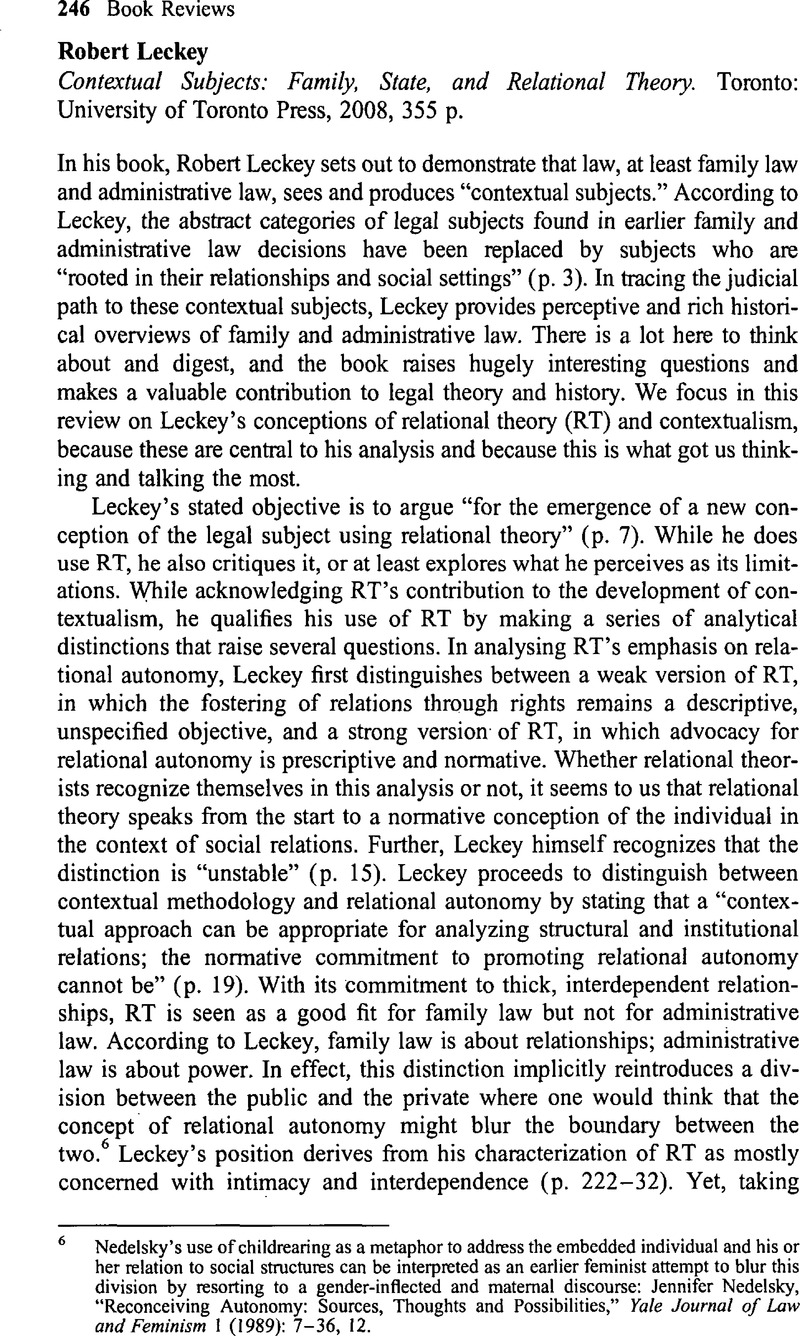No CrossRef data available.
Published online by Cambridge University Press: 18 July 2014

6 Nedelsky's use of childrearing as a metaphor to address the embedded individual and his or her relation to social structures can be interpreted as an earlier feminist attempt to blur this division by resorting to a gender-inflected and maternal discourse: Nedelsky, Jennifer, “Reconceiving Autonomy: Sources, Thoughts and Possibilities,” Yale Journal of Law and Feminism 1 (1989): 7–36, 12Google Scholar.
7 “One of the oldest feminist arguments is that women are not seen and defined as themselves, but in their relations to others”: Nedelsky, “Reconceiving Autonomy,” 9. Nedelsky goes on to refer to Simone de Beauvoir's concept of the Other.
8 “Contrary to the occasional claims of relational theorists, the context is not something to be examined in isolation from distinctly normative claims” (196).
9 See Smart, Carol, Law, Crime, and Sexuality (London: Sage, 1995)Google ScholarPateman, Carole, “Self-Ownership and Property in the Person: Democratization and a Tale of Two Concepts,” Journal of Political Philosophy 10, 1 (2002): 20–53CrossRefGoogle Scholar.
To send this article to your Kindle, first ensure no-reply@cambridge.org is added to your Approved Personal Document E-mail List under your Personal Document Settings on the Manage Your Content and Devices page of your Amazon account. Then enter the ‘name’ part of your Kindle email address below. Find out more about sending to your Kindle. Find out more about saving to your Kindle.
Note you can select to save to either the @free.kindle.com or @kindle.com variations. ‘@free.kindle.com’ emails are free but can only be saved to your device when it is connected to wi-fi. ‘@kindle.com’ emails can be delivered even when you are not connected to wi-fi, but note that service fees apply.
Find out more about the Kindle Personal Document Service.
To save this article to your Dropbox account, please select one or more formats and confirm that you agree to abide by our usage policies. If this is the first time you used this feature, you will be asked to authorise Cambridge Core to connect with your Dropbox account. Find out more about saving content to Dropbox.
To save this article to your Google Drive account, please select one or more formats and confirm that you agree to abide by our usage policies. If this is the first time you used this feature, you will be asked to authorise Cambridge Core to connect with your Google Drive account. Find out more about saving content to Google Drive.